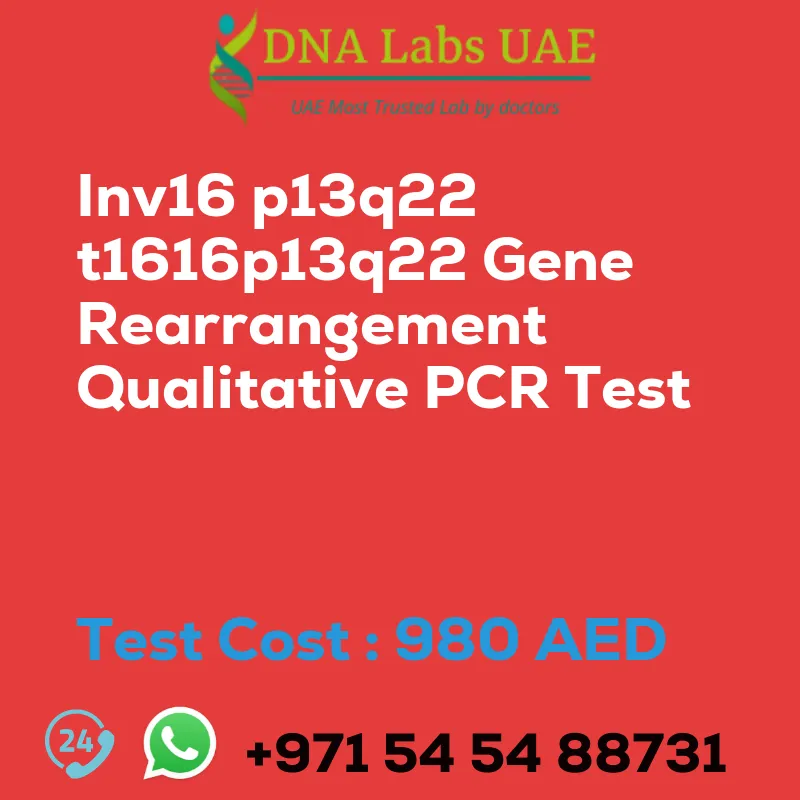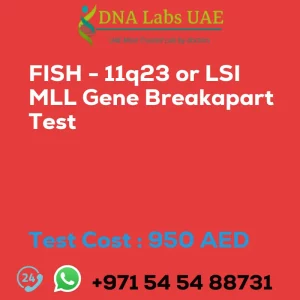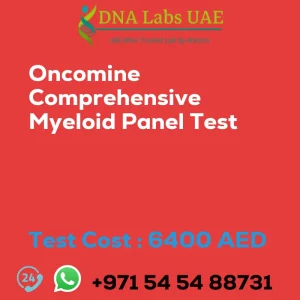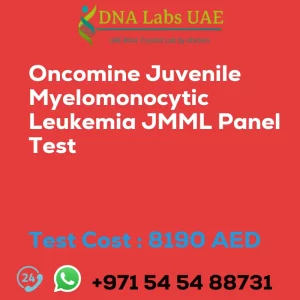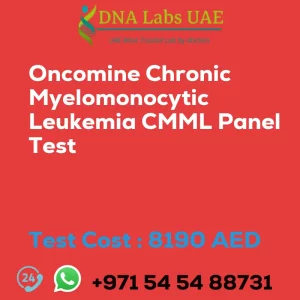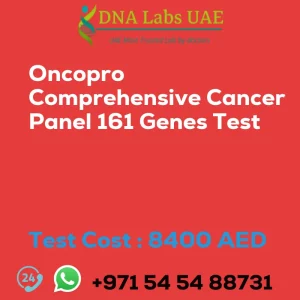Inv16 p13q22 t1616p13q22 GENE REARRANGEMENT QUALITATIVE PCR Test
Test Cost: AED 980.0
Test Components:
- Sample Condition: 3 mL (2 mL min.) whole blood / Bone Marrow from 1 Lavender Top (EDTA) tube. Ship refrigerated. DO NOT FREEZE.
- Duly filled Genomics Clinical Information Requisition Form (Form 20) is mandatory.
Report Delivery:
Sample collected on Mon / Thu by 11 am will have the report delivered on Wed / Sat.
Method:
Real Time PCR
Test Type:
Cancer
Doctor:
Hematologist, Oncologist
Test Department:
MOLECULAR DIAGNOSTICS
Pre Test Information:
Duly filled Genomics Clinical Information Requisition Form (Form 20) is mandatory.
Test Details:
The Inv16 (p13q22) / t(1616)(p13q22) gene rearrangement qualitative PCR test is a diagnostic test used to detect specific genetic rearrangements in a patient’s DNA. This test is commonly used in the diagnosis of certain types of leukemia, specifically acute myeloid leukemia (AML) with inv(16) or t(16;16) cytogenetic abnormalities.
The inv(16) or t(16;16) cytogenetic abnormalities involve a rearrangement of genetic material between chromosomes 16 and result in the fusion of two genes: CBFB (core-binding factor subunit beta) and MYH11 (myosin heavy chain 11). This fusion gene is known as CBFB-MYH11 and is associated with a specific subtype of AML called acute myelomonocytic leukemia with eosinophilia (AML-M4Eo).
The Inv16 (p13q22) / t(1616)(p13q22) gene rearrangement qualitative PCR test uses polymerase chain reaction (PCR) technology to amplify and detect the presence of the CBFB-MYH11 fusion gene in a patient’s DNA sample. This test can help confirm the diagnosis of AML-M4Eo and guide treatment decisions.
It is important to note that this test is a qualitative PCR test, which means it can determine the presence or absence of the gene rearrangement but does not provide information on the quantity or level of the rearrangement. Quantitative PCR tests may be used to measure the level of gene rearrangement, which can be helpful in monitoring treatment response and disease progression.
Overall, the Inv16 (p13q22) / t(1616)(p13q22) gene rearrangement qualitative PCR test is a valuable tool in the diagnosis and management of certain types of leukemia, providing important information for treatment decisions and prognosis.
| Test Name | Inv16 p13q22 t1616p13q22 GENE REARRANGEMENT QUALITATIVE PCR Test |
|---|---|
| Components | |
| Price | 980.0 AED |
| Sample Condition | 3 mL (2 mL min.) whole blood \/ Bone Marrow from 1 Lavender Top (EDTA) tube. Ship refrigerated. DO NOT FREEZE. Duly filled Genomics Clinical Information Requisition Form (Form 20) is mandatory. |
| Report Delivery | SampleMon / Thu by 11 am; Report Wed / Sat |
| Method | Real Time PCR |
| Test type | Cancer |
| Doctor | Hematologist, Oncologist |
| Test Department: | MOLECULAR DIAGNOSTICS |
| Pre Test Information | Duly filled Genomics Clinical Information Requisition Form (Form 20) is mandatory. |
| Test Details |
The Inv16 (p13q22) / t(1616)(p13q22) gene rearrangement qualitative PCR test is a diagnostic test used to detect specific genetic rearrangements in a patient’s DNA. This test is commonly used in the diagnosis of certain types of leukemia, specifically acute myeloid leukemia (AML) with inv(16) or t(16;16) cytogenetic abnormalities. The inv(16) or t(16;16) cytogenetic abnormalities involve a rearrangement of genetic material between chromosomes 16 and result in the fusion of two genes: CBFB (core-binding factor subunit beta) and MYH11 (myosin heavy chain 11). This fusion gene is known as CBFB-MYH11 and is associated with a specific subtype of AML called acute myelomonocytic leukemia with eosinophilia (AML-M4Eo). The Inv16 (p13q22) / t(1616)(p13q22) gene rearrangement qualitative PCR test uses polymerase chain reaction (PCR) technology to amplify and detect the presence of the CBFB-MYH11 fusion gene in a patient’s DNA sample. This test can help confirm the diagnosis of AML-M4Eo and guide treatment decisions. It is important to note that this test is a qualitative PCR test, which means it can determine the presence or absence of the gene rearrangement but does not provide information on the quantity or level of the rearrangement. Quantitative PCR tests may be used to measure the level of gene rearrangement, which can be helpful in monitoring treatment response and disease progression. Overall, the Inv16 (p13q22) / t(1616)(p13q22) gene rearrangement qualitative PCR test is a valuable tool in the diagnosis and management of certain types of leukemia, providing important information for treatment decisions and prognosis. |

